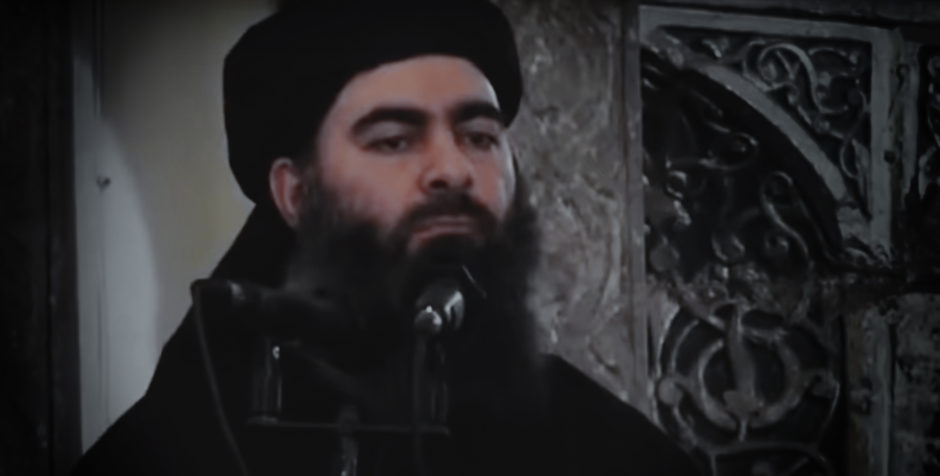What the U.S. Military Operation that Led to the Death of ISIS Leader Abu Bakr al-Baghdadi Means for the War on Terror
Last weekend brought the good news that ISIS leader Abu Bakr al-Baghdadi was killed in a raid carried out by U.S. special forces in Syria. Al-Baghdadi reportedly detonated a suicide vest after being cornered in a tunnel by members of Delta Force and a Special Operations canine member. He killed three of his own children in the blast. U.S. Army Rangers and aviators assisted in the mission.
Retired General James Mattis summed it up well, stating, “We killed him. That’s reality. I think the theme for the military is: We’ll follow you to the ends of the earth, and we’ll find you and kill you.” His death informs other jihadists that they will never achieve victory and are likewise doomed to an early and violent death.
Rising to power in his native Iraq after President Obama ordered all U.S. troops out of Iraq in 2011, he did something that even Bin Laden could not: he founded a geographical caliphate across Syria and western Iraq.
Evil has never had a more vivid face than that of this Islamic radical and unrepentant terrorist. In his rise to power, his inhumanity and barbarism knew no equal. He was responsible for the senseless beheading of many Westerners, including several journalists.
He actually enjoyed inflicting violence, fear and torture on people that were totally innocent, irrespective of their nationality or religious profession.
What made this even more sickening and perverse is that he did this in the name of the Islamic faith. Having multiple wives, he also made sex slaves of some of his female captives—torturing and raping them repeatedly. These victims included an American Christian young woman, Kayla Mueller, for whom the raid to take out al-Baghdadi was named. She was a religious aid-worker, seeking to relieve the vast human suffering in Syria. She refused to recant her commitment to Christ and convert to Islam, and truly died a martyr’s death.
While it has been a long time since the U.S. homeland has suffered a major attack by radical Islamists, this raid is a reminder that the threat of terrorism is real and that the war on terror is not over. It is a multi-generational war, probably a hundred years war. The death of al-Baghdadi, like that of Osama Bin Laden, will not end the danger posed by radical Islam. Our men and women in the armed forces, as well as our professionals in the intelligence community, will continue to do what they do best, protecting Americans at home and U.S. people and interests abroad. They deserve our prayers, our support and our gratitude.
This attack underscores the importance of our allies in this fight as well. Reports indicate that Iraq and the Syrian Democratic forces were instrumental in supporting this mission and helping to pinpoint al-Baghdadi’s location. And as the Wall Street Journal reminds us, this successful raid shows the importance of intelligence gathered from prisoners. Iraqi officials say their interrogation of ISIS captives helped to locate ISIS’ leader. In spite of criticism from the Left discrediting interrogation since the Iraq War, “it remains crucial to preventing future attacks and killing terror leaders.”
ISIS has already named a new leader. The countdown clock to his death has started. However, the group’s decentralized command and control system gives them adaptability and the ability to replace leaders quickly. Additionally, when fighting an ideology instead of a nation state, the process is long and there is usually no end date when a celebratory victory can be declared. ISIS, like al-Qaeda, has spawned ideological branches throughout Afghanistan and the Middle East, as well as Africa. ISIS-connected or inspired radicals exist in Europe and North America—including the United States.
As officials continue to debate whether to keep U.S. troops in Syria and Afghanistan, and if so how many, this mission shows that the United States can still protect its interests and project its force with Special Operations forces, air assets, and surgical strikes that can deliver devastating blows to our enemies. Asymmetrical warfare entails new ways of fighting wars. Our advanced technology and weapons systems means that we do not always have to fight with thousands of boots on the ground in order to achieve victory.
For more reaction from our ACLJ national security team, read our update and watch our broadcast here.

